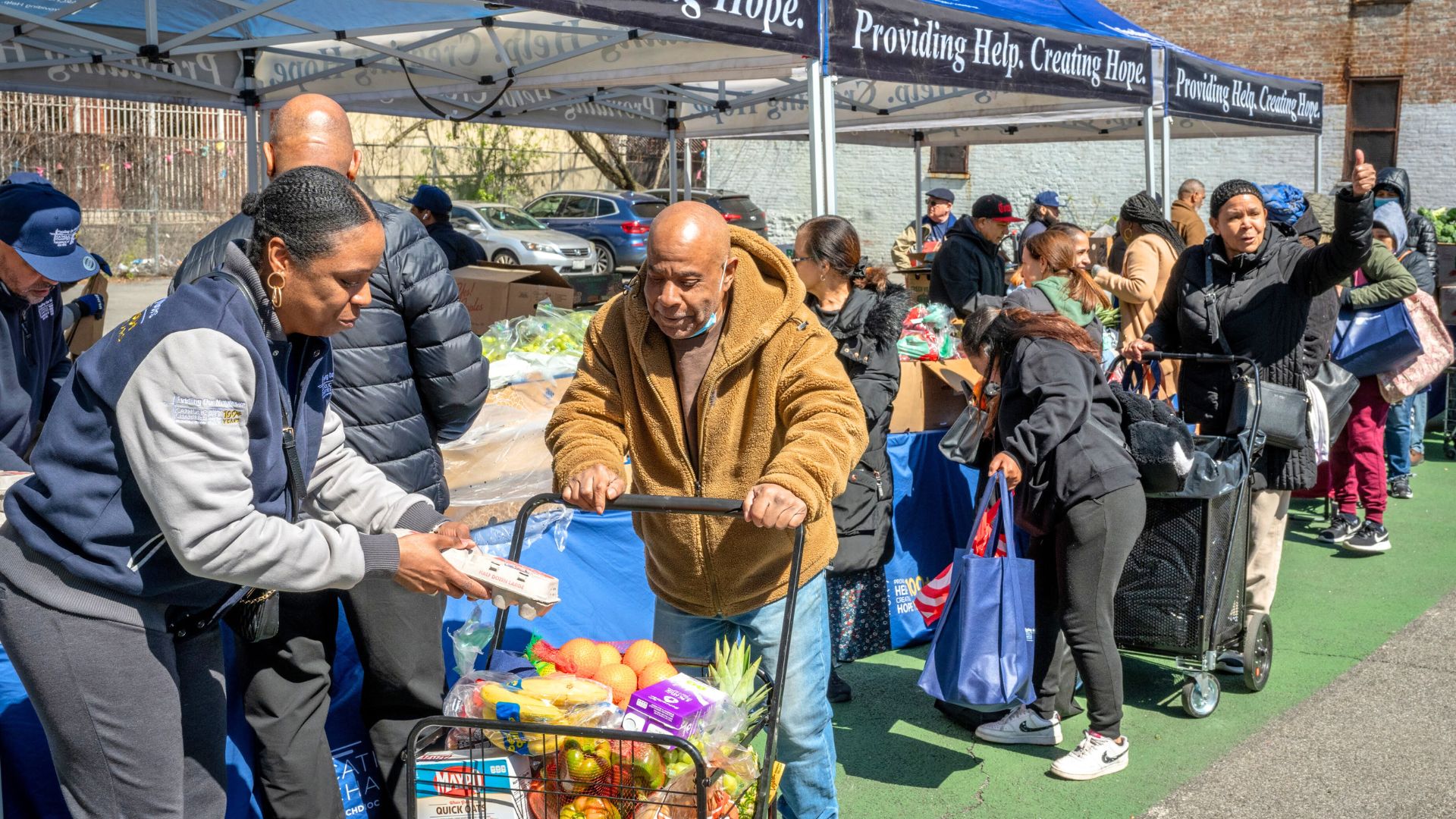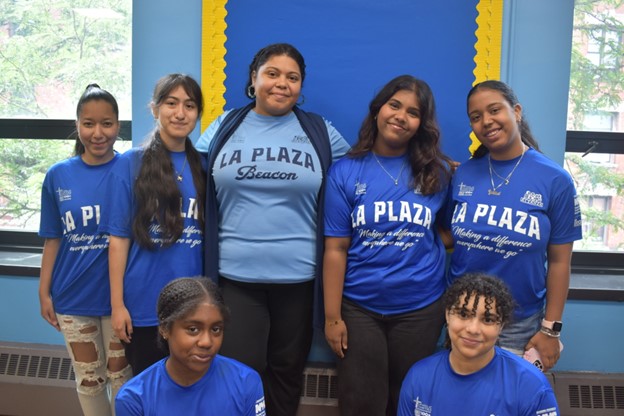Catholic Charities of the Archdiocese of New York relies on generous donors to deliver millions of meals each year to New Yorkers facing hunger. Planned giving, meaning charitable gifts structured through estate plans, retirement accounts, or other long-term vehicles, provides sustainable, transformational support that strengthens these essential food programs.
Feeding New York: A Snapshot of the Food Programs
Catholic Charities of New York’s Feeding Our Neighbors initiative reaches around 50,000 New Yorkers each month through more than 40 food sites, including food pantries, soup kitchens, mobile distribution and home delivery programs.
In 2024 alone:
- Over 10 million meals were served across the network
- 230,000+ meals came through community kitchens
- 108,000+ were delivered to individuals unable to leave home
- Assistance was provided to more than 7,500 people applying for SNAP benefits
Emergency response is integral, when neighborhoods face acute crises, Catholic Charities of New York establishes pop‑up distribution sites to serve communities in urgent need.
What Is Planned Giving?
Through the Planned Giving program, hosted on CatholicCharitiesNY.giftplans.org, donors can structure gifts via:
- Bequests in wills or living trusts
- Beneficiary designations on retirement-plan accounts
- Gift annuities and life-income arrangement
These flexible giving options allow individuals to honor their financial goals, reduce tax burdens, and create a lasting legacy that sustains the mission of Catholic Charities of New York.
Why Planned Gifts Matter for Food Programs
- Stability for Long-Term Planning
Planned gifts give Catholic Charities of New York a dependable funding stream, enabling strategic investment in food infrastructure such as food pantries, mobile distributions, and community hubs. This stability allows them to serve families even in economic uncertainty.
- Amplified Impact on Nutrition Services
Major donations made through planned giving can underwrite full-year operations of pantry sites or sponsor emergency distributions. For example, modest gifts pooled together can sustain multiple pantries or feed dozens of families for months on end.
- Efficient Use of Donor Support
Unlike food items, which may bring storage and transportation costs, cash gifts can be used where most needed. Whether purchasing culturally suitable items, locally sourced fresh produce, or paying for logistics, monetary giving maximizes impact and flexibility.
- Dignity and Hope in Times of Need
Ultimately, planned gifts help ensure nobody faces hunger alone. Families receive fresh, nutritious groceries, hot meals at soup kitchens, and home delivery if they are homebound. This extends compassion and care to every corner of the community for everyone.
Conclusion: Beyond Charity, A Sustaining Mission
Planned giving transforms supporter generosity into long-term nourishment, solidarity, and dignity for those served by Catholic Charities of New York. It empowers donors to make deeply meaningful, sustainable contributions that echo through lives and communities.
If you’re considering options, explore Catholic Charities of New York’s Life Stage Gift Planner™, Beneficiary Designations, or Gift by Will options, and learn how you can help ensure meals continue for New Yorkers in need for generations to come. Please visit CatholicCharitiesNY.giftplans.org to learn more.
Through thoughtful estate and legacy planning, supporters help Catholic Charities of New York uphold its commitment: making sure no neighbor goes hungry, not just today, but well into the future.













